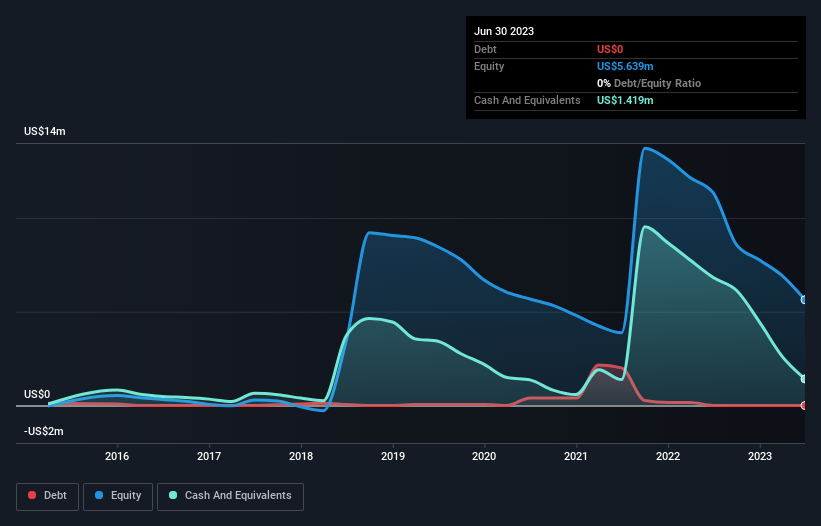Here's Why We're Watching Focus Universal's (NASDAQ:FCUV) Cash Burn Situation
We can readily understand why investors are attracted to unprofitable companies. For example, although Amazon.com made losses for many years after listing, if you had bought and held the shares since 1999, you would have made a fortune. But while history lauds those rare successes, those that fail are often forgotten; who remembers Pets.com?
Given this risk, we thought we'd take a look at whether Focus Universal (NASDAQ:FCUV) shareholders should be worried about its cash burn. In this report, we will consider the company's annual negative free cash flow, henceforth referring to it as the 'cash burn'. We'll start by comparing its cash burn with its cash reserves in order to calculate its cash runway.
Check out our latest analysis for Focus Universal
When Might Focus Universal Run Out Of Money?
You can calculate a company's cash runway by dividing the amount of cash it has by the rate at which it is spending that cash. In June 2023, Focus Universal had US$1.4m in cash, and was debt-free. In the last year, its cash burn was US$2.8m. So it had a cash runway of approximately 6 months from June 2023. To be frank, this kind of short runway puts us on edge, as it indicates the company must reduce its cash burn significantly, or else raise cash imminently. Depicted below, you can see how its cash holdings have changed over time.
How Is Focus Universal's Cash Burn Changing Over Time?
Whilst it's great to see that Focus Universal has already begun generating revenue from operations, last year it only produced US$583k, so we don't think it is generating significant revenue, at this point. As a result, we think it's a bit early to focus on the revenue growth, so we'll limit ourselves to looking at how the cash burn is changing over time. Cash burn was pretty flat over the last year, which suggests that management are holding spending steady while the business advances its strategy. Focus Universal makes us a little nervous due to its lack of substantial operating revenue. We prefer most of the stocks on this list of stocks that analysts expect to grow.
How Hard Would It Be For Focus Universal To Raise More Cash For Growth?
While its cash burn is only increasing slightly, Focus Universal shareholders should still consider the potential need for further cash, down the track. Generally speaking, a listed business can raise new cash through issuing shares or taking on debt. Many companies end up issuing new shares to fund future growth. We can compare a company's cash burn to its market capitalisation to get a sense for how many new shares a company would have to issue to fund one year's operations.
Focus Universal's cash burn of US$2.8m is about 2.2% of its US$129m market capitalisation. That means it could easily issue a few shares to fund more growth, and might well be in a position to borrow cheaply.
How Risky Is Focus Universal's Cash Burn Situation?
Even though its cash runway makes us a little nervous, we are compelled to mention that we thought Focus Universal's cash burn relative to its market cap was relatively promising. Looking at the factors mentioned in this short report, we do think that its cash burn is a bit risky, and it does make us slightly nervous about the stock. Taking an in-depth view of risks, we've identified 3 warning signs for Focus Universal that you should be aware of before investing.
Of course Focus Universal may not be the best stock to buy. So you may wish to see this free collection of companies boasting high return on equity, or this list of stocks that insiders are buying.
Have feedback on this article? Concerned about the content? Get in touch with us directly. Alternatively, email editorial-team (at) simplywallst.com.
This article by Simply Wall St is general in nature. We provide commentary based on historical data and analyst forecasts only using an unbiased methodology and our articles are not intended to be financial advice. It does not constitute a recommendation to buy or sell any stock, and does not take account of your objectives, or your financial situation. We aim to bring you long-term focused analysis driven by fundamental data. Note that our analysis may not factor in the latest price-sensitive company announcements or qualitative material. Simply Wall St has no position in any stocks mentioned.

